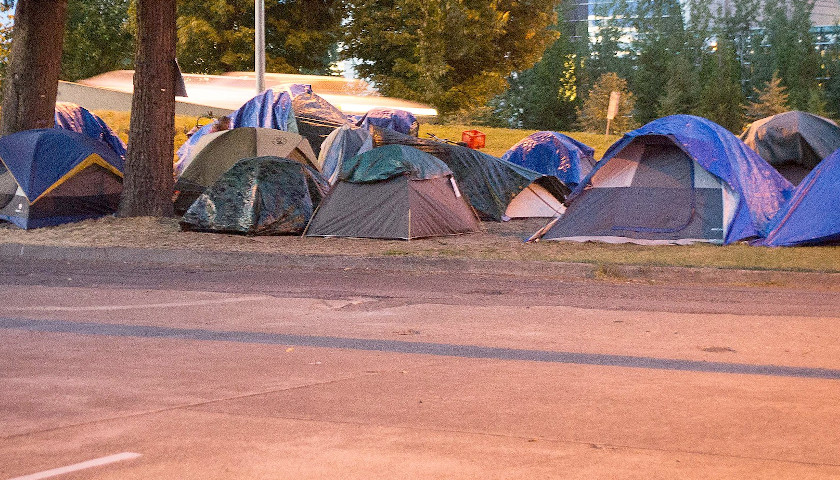Athens-Clarke County officials use taxpayer money to lure in greater and greater numbers of homeless people from around Georgia, but the potential consequences to the county and to the University of Georgia (UGA) are too great to ignore.
This, according to two Athens residents who said they have observed the city’s homeless epidemic up close.
One of the two residents, John Gurley, said he has seen more and more UGA parents worry over their child’s safety. Aggressive behavior from the city’s homeless plays a role, Gurley said.
“Once the University of Georgia engages on this then things will start to happen,” said Gurley, who added that five of his grandchildren live in the area.
“This is something that could impact enrollments and could impact endowments not being given.”
Another Athens resident, Donna Carter, told The Georgia Star News this week that, per her assessment, 60 to 70 percent of the people who find themselves homeless do struggle with mental health and addiction problems.
“You aren’t going to reintegrate them back into society the way that they are. They need a supervised living environment where they can be monitored,” Carter said.
“Maybe you lost a job. Maybe you lost your place to live. These are people who found themselves in awkward situations. They can get back into the community again. They are worth the effort, but other people are not going to become integral members of the community.”
The Star News’ repeated attempts to contact Athens-Clarke County Mayor Kelly Girtz and the county’s 10 commissioners were unsuccessful this week.
Members of one Athens church said this week that homeless people — many of whom they suspect aren’t even from that city — have harassed and threatened them on church grounds.
Luis Ortiz, the senior pastor of the Athens’ Young Harris Memorial United Methodist Church, said his complaints to Athens-Clarke County officials go mostly ignored. He and other city residents said they believe Athens’ officials are using a $60 million federal grant to bestow upon homeless people. Consequently, homeless people from other areas of the state have learned about this grant and are relocating to Athens.
Ortiz spent nearly one hour late last month describing how homeless people who congregate near Young Harris Memorial intimidate and endanger members of his church, many of whom are elderly.
Carter told The Star News that assisting the homeless is a matter of containing it — not abolishing it.
“That’s because you will never solve it. You are always going to have this issue. Secondly, I think it is unfair for the taxpayers of Athens to have to support the homeless from the surrounding counties who are coming in to get services because they hear the benefits are greater in Athens,” Carter said.
“They consider anyone who comes to Athens an Athens resident. If you have a finite amount of funding to assist with these programs and you have an influx of people from the surrounding counties, then the Athens residents who need the help are the ones who will be penalized.”
– – –
Chris Butler is an investigative journalist at The Tennessee Star and The Georgia Star News. Follow Chris on Facebook, Twitter, Parler, and GETTR. Email tips to [email protected].
Photo “Homeless Camp” by Visitor7. CC BY-SA 3.0.






MS 13 has moved into the area as well.
A UGA student was found dead on the side of a road and was quickly designated as a victim of a hit and run instead of a gang initiation victim.
A very liberal group run Athens now along with a District Attorney to match, and it shows.